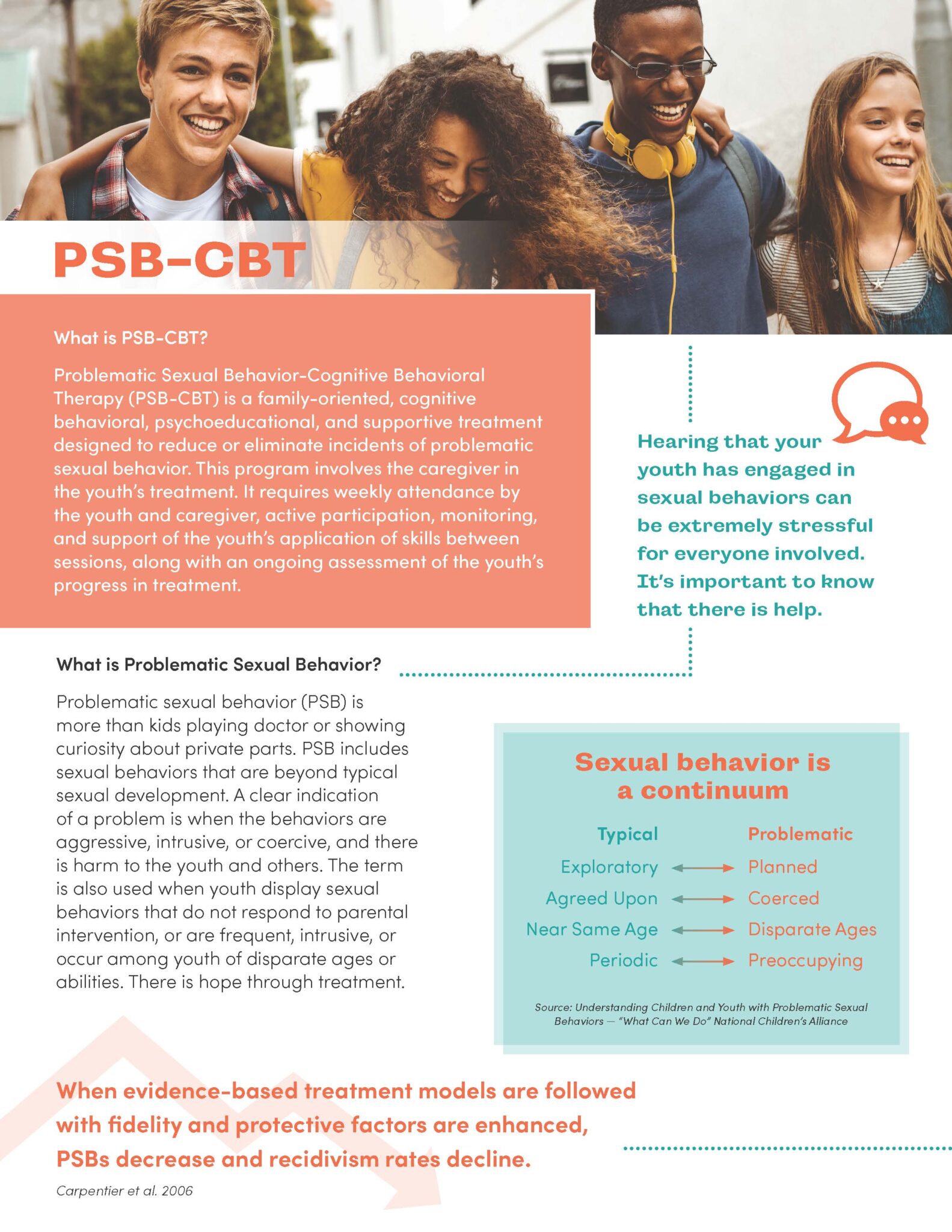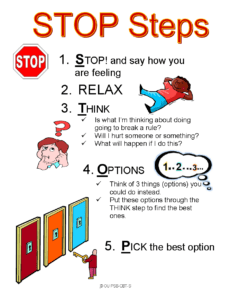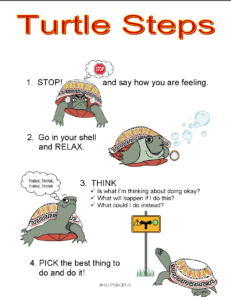
What happens now?
The most important thing you can do is support the safety and well-being of all your children. This includes helping your child develop healthier choices and behaviors. Effective treatments do exist and future problematic sexual behaviors can be prevented. Children with problematic sexual behaviors can learn to better respect themselves and others. Additionally, they can learn to demonstrate healthy boundaries and behaviors even when the reasons for the problematic sexual behaviors remain unclear.
Your child needs your support now more than ever. It is important to remember that the sexual behavior does not completely define your child. Research shows that with targeted treatment and good parental guidance, supervision and support, most youth will not engage in further problematic sexual behavior. There are concrete steps you can take to help your child. Most children whose families complete treatment can lead happy, successful lives, both as children and later as adults. Parental support and guidance are vital to achieving positive outcomes. If there is legal involvement, parents may decide to seek the counsel of an attorney to help them understand the legal process and their child’s rights.
It is common for caregivers to wonder why they did not notice something earlier or wonder if they could have done something to prevent their child’s problematic sexual behavior. Feelings of guilt and/or embarrassment are normal; however, it is rare that caregivers know or suspect their child is dealing with this issue. Youth often hide their sexual behavior from adults (especially parents). Parents often find out about the behavior after it occurs, and thus could not have prevented it. You can be active in preventing future behavior and promoting safety.
There is a strong stigma attached to problematic sexual behavior that can lead to severe social and academic consequences for youth. However, important adults in a child’s life should understand that labeling a child is unnecessary and counterproductive. Those supervising your child can use careful communication to prompt appropriate supervision without using unhelpful labels.
Supervision
Supervision is key. Children who have had problematic sexual behaviors need line-of-sight supervision when interacting with other children. Enlisting the help of your support system can help make managing your child’s behaviors more feasible. Only informed adults should be given the responsibility of babysitting or watching children when problematic sexual behaviors have occurred.
Setting clear expectations is an important way to help your child understand and follow rules. Children who have broken personal boundary rules should not bathe or sleep with other children or have unsupervised time with younger children. Adults in the home should also model modesty rules to help their children understand and follow basic sexual behavior rules.
When a child acts out sexually, it can be overwhelming not only for parents and other caregivers— it can also be hard on other children in the household, most of all if one of the children was the victim. Caregivers can become torn on how to help all their children, and the stress can strain relationships and test family supports. Whether the child who acted out remains in the home or must live separately for a time, other children, especially the victim, often feel fear and sadness, and even guilt if the family must be temporarily separated. You can help other children in the household including victims with the following messages:
“It’s not your fault.”
“We are getting help for our family.”
“Do you want to talk about it?”
“You did the right thing by telling,” if the child victim told what happened to them.
If they are not ready to talk to you about it, ask: “Is there someone else you trust that you can talk to?”
The child victim may experience behavior problems, nightmares, depression, or anxiety. They may startle easily, or may avoid certain places or the sibling who acted out sexually. If your child is experiencing any of these symptoms, it is recommended that your child see a therapist or other mental health professional.

Safety
In order to provide safety the Sexual Behavior Rules need to be in place and followed by all children.
- It is not OK to show your private parts to others.
- It is not OK to look at other people’s private parts.
- It is not OK to touch other people’s private parts.
- It is not OK to touch your private parts in public (or when others are present).
- It is not OK to use sexual language or make other people uncomfortably with your sexual behavior.
*Additional information is available through the National Center on the Sexual Behavior of Youth at opens in a new windowwww.ncsby.org
Safety Planning
- Provide and arrange for appropriate supervision.
- Teach simple rules about boundaries and sexual behavior.
- Monitor electronic devices and access to the Internet.
Effective Treatment
Problematic Sexual Behaviors-Cognitive Behavioral Therapy (PSB-CBT) is an evidenced based treatment for problematic sexual behavior in school-aged children and for pre-school children has “Promising Evidence”. Research has shown that families that participate in PSB-CBT are no more likely than the general population of children to have future problematic sexual behaviors. This is extremely important not only for the children and the families that we serve but also to the community in general because of this decreased risk.
The programs work with caregivers and the youth to increase safety, as well as promote healthy, positive choices in children with problem sexual behaviors.
Children will learn:
- Rules about sexual behavior and boundaries
- Coping skills
- Social skills
- Impulse-control skills
- Developmentally appropriate sexual education
- How their behavior impacts others
Caregivers also must participate in the weekly program. In addition to learning the same things their children are learning, they will also learn:
- Supervision and behavior management strategies to prevent behavior problems, sexual and otherwise
- Abuse Prevention Skills
- How to talk to their children about their values about sexual education and other uncomfortable topics



